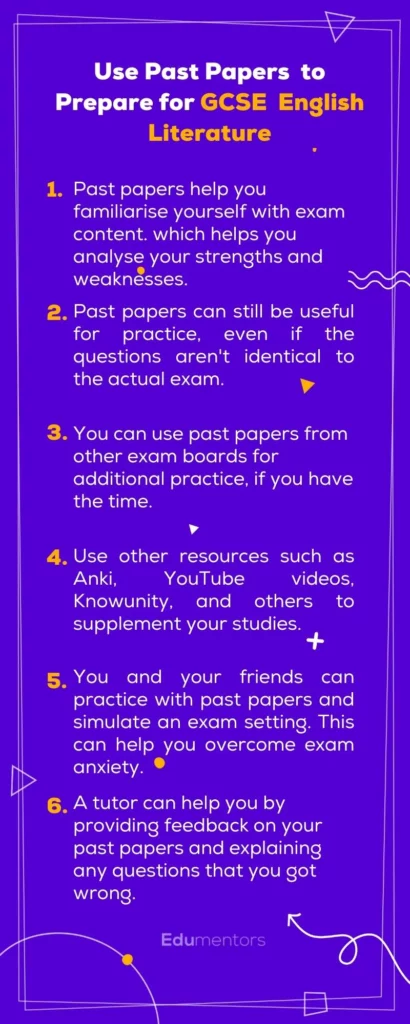Table of Contents:
AQA
Paper 1
Paper 2
| Question Paper | Mark Scheme |
| June 2018 | June 2018 |
| June 2019 | June 2019 |
| November 2020 | November 2020 |
| November 2021 | November 2021 |
OCR
Paper 1
| Question Paper | Mark Scheme |
| June 2018 | June 2018 |
| June 2019 | June 2019 |
| November 2020 | November 2020 |
| November 2021 | November 2021 |
Paper 2
| Question Paper | Mark Scheme |
| June 2018 | June 2018 |
| June 2019 | June 2019 |
| November 2020 | November 2020 |
| November 2021 | November 2021 |
Pearson Edexcel
Paper 1
| Question Paper | Mark Scheme |
| June 2017 | June 2017 |
| June 2018 | June 2018 |
| June 2019 | June 2019 |
| November 2020 | November 2020 |
| November 2021 | November 2021 |
Paper 2
| Question Paper | Mark Scheme |
| June 2017 | June 2017 |
| June 2018 | June 2018 |
| June 2019 | June 2019 |
| November 2020 | November 2020 |
| November 2021 Paper 2N | November 2021 Paper 2N |
| November 2021 Paper 2P | November 2021 Paper 2P |
WJEC Eduqas
Component 1 – Shakespeare and Poetry – C720U10-1
| Question Paper | Mark Scheme |
| June 2017 | June 2017 |
| June 2018 | June 2018 |
| June 2019 | June 2019 |
| November 2020 | November 2020 |
Component 2 – Post-1914 Prose/ Drama, 19th Century Prose and Unseen Poetry – C720U20-1
| Question Paper | Mark Scheme |
| June 2017 | June 2017 |
| June 2018 | June 2018 |
| June 2019 | June 2019 |
| November 2020 | November 2020 |
FAQs About GCSE English Literature

What is the Format of the GCSE English Literature Exam?
The GCSE English Literature exam format is a 2 hour 15 minutes written exam consisting of 96 marks, which is 60% of the overall GCSE grade. The exam is divided into two sections:
Section A: Modern texts, in which students will answer one essay question from a choice of two on their studied modern prose or drama text.
Section B: Poetry anthology, in which students will answer one essay question from a choice of two on their studied poetry anthology and one question on an unseen poem.
What are the Key Skills Tested in GCSE English Literature?
The key skills tested in GCSE English Literature exam include:
- Understanding and interpretation of literary texts, including analysing literary techniques, themes, and language used in the texts.
- Comparing and contrasting texts, including how they reflect the context in which they were written and how they relate to other texts within the same genre.
- The ability to develop and support arguments and interpretations using evidence from the texts.
- The ability to write effectively and coherently about literature, including the use of appropriate literary terms and concepts.
- The ability to appreciate the complexity of literary texts, including the way in which different perspectives and interpretations can be applied to them.
- The ability to read, analyse and evaluate unseen poetry.
These skills are tested through a combination of multiple choice questions, short answer questions and essays.
What are the main texts studied in GCSE English Literature?
In GCSE English Literature, students typically study a variety of texts, including poetry, plays, and novels. Some common texts that are studied include William Shakespeare’s “Romeo and Juliet” and “Macbeth,” Charles Dickens’ “Great Expectations,” and J.B. Priestley’s “An Inspector Calls.” Other texts that may be studied include “A Christmas Carol” by Charles Dickens, “Of Mice and Men” by John Steinbeck, “Lord of the Flies” by William Golding, “Animal Farm” by George Orwell, “A Streetcar Named Desire” by Tennessee Williams, “The Handmaid’s Tale” by Margaret Atwood and “The Poetry of the First World War.” This may vary depending on the exam board and school curriculum.
How is GCSE English Literature Graded?
GCSE English Literature is graded on a 9-1 scale in the United Kingdom, with 9 being the highest grade and 1 being the lowest. The 9-1 grading system was introduced in 2017 as a replacement for the previous A*-G system. The grade is determined by an examination, which is typically taken at the end of the course, and is based on the student’s knowledge and understanding of the literature studied, as well as their ability to analyze and interpret the texts.
What is the Best Way to Revise for GCSE English Literature?
There are several effective ways to revise for GCSE English literature. Some strategies that may be helpful include:
- Reading the texts closely. Make sure you understand all the themes, characters, and symbols in the texts you will be tested on.
- Creating summaries. Summarise each text in your own words to help you understand the main points.
- Making connections. Connect the texts to your own life and experiences to make them more meaningful and easier to remember.
- Practising past papers. This will help you become familiar with the format of the exam and the types of questions you will be asked.
- Active reading. Try to actively engage with the texts by asking questions, making predictions, and drawing connections to other texts or events.
- Revise with a group or a teacher. This will help you to get fresh perspectives and feedback on your understanding of the texts.
- Get enough sleep and eat well. A healthy body and mind will help you to retain and process information better.
It’s also important to find a study schedule that works for you and stick to it, while being mindful of not overloading yourself and taking breaks when needed.








